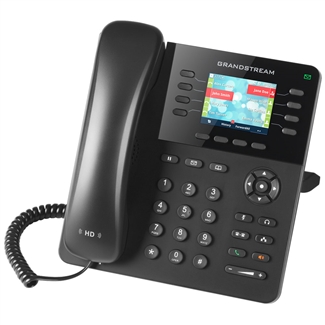With more small businesses turning to Voice over Internet Protocol phone systems, isn’t it time you consider the cost and equipment advantages that VoIP may bring to your company?
Although VoIP technology is not new, many small businesses are now only beginning to study whether they should to replace their legacy landline phone systems. For most, it’s the right move.
But corporate VoIP is more complex than the simple system for your home and requires additional thought and planning before you take the plunge. Research on the various plans available will pay off, and it‘s worth your while to hire an independent consultant with substantial knowledge of the various systems being sold or rented locally.
The Key Factors to Consider
Among the key factors your business needs to consider are the levels of flexibility you need from a VoIP service, the total numbers you want to use from day one and the degree of centralization you require.
Enterprise-level VoIP brings with it the key benefit of free VoIP-to-VoIP calls. This starts paying for itself if your company maintains offices in multiple locations that must be connected by phone. Again, VoIP-to-VoIP calls are free, and your costs are reduced further if your key customers also have VoIP systems. In that context, enterprise VoIP can quickly start paying for itself.
VoIP is also an important part of the overall corporate unified communications system. Installing it provides your company with the opportunity to integrate voice communications with other apps and technologies, including instant messaging, voice mail, email and data storage.
The flexibility of VoIP plans lets your company make quick changes on short notice. With VoIP communications, it’s easier to add or delete numbers, change the levels of service, integrate apps and other technologies, or monitor what’s going on across your company’s phone system.
Calls From Home or on the Road
Administration portals allow senior managers a better overview of what’s happening across a firm’s communication suite. It’s also easier to allow your workers to use the company VoIP system from their homes or on business trips simply by installing apps onto their smartphones.
Installation of a VoIP network in your company is a great opportunity to rationalize and modernize your existing phone systems. It doesn’t need a massive change initially because a VoIP system’s analogue adapters will allow you to convert phone signals into data packets that can travel on fiber optic cables. There’s no need to buy dozens of new phones.
Some companies choose to connect a dedicated landline phone directly to a router or simply start installing VoIP apps on corporate cell phones.
Key takeaways:
While VoIP technology has been available for some time, many business are still relying on old landlines and haven’t yet enjoyed the money a VoIP system can save.
The installation of a VoIP network doesn’t need to create chaos within your company, or even present considerable additional hardware costs.
The technology is now highly flexible and there are providers and plans to support it. This means your company can change its plan as it grows.
Installation of a VoIP network represents an opportunity for the business to revisit its entire telecommunications setup and integrate it with other software systems.
VoIP
Simon Gray
About the Author
Simon Gray


No responses yet